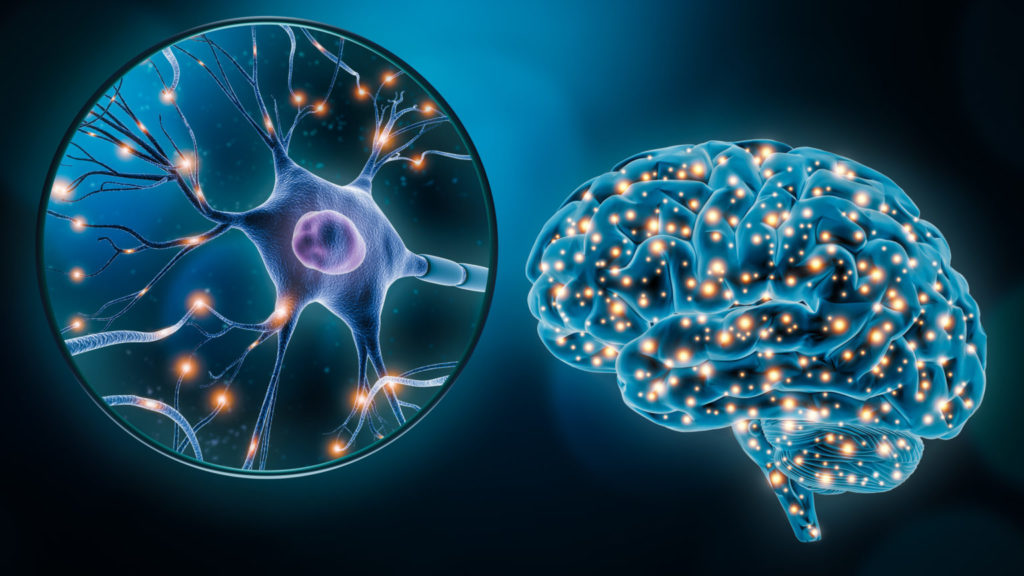Dr. Fabrizio Vecchio wrote about the potential synergistic effects of neuromodulation combined with cognitive training to treat Alzheimer’s disease.

The Trending With Impact series highlights Aging (Aging-US) publications that attract higher visibility among readers around the world online, in the news, and on social media—beyond normal readership levels. Look for future science news about the latest trending publications here, and at Aging-US.com.
–
Many neurodegenerative disorders among elderly populations share some common characteristics. In dementias, for example, neurons and glial cells undergo a progressive loss of structure or function in the brain and spinal cord. Alzheimer’s disease (AD) is the most common form of dementia and the main cause of cognitive impairment. Studies have confirmed that cognitive treatments, such as cognitive stimulation, training and rehabilitation, can improve brain function by increasing brain plasticity.
Recently, researcher Fabrizio Vecchio, from IRCCS San Raffaele Roma‘s Brain Connectivity Laboratory, discussed innovative treatment options for Alzheimer’s disease. On April 27, 2022, Dr. Vecchio published his new editorial paper in Volume 14, Issue 9, of Aging (Aging-US), entitled, “Cognitive training and neuromodulation for Alzheimer treatment.”
“Neuromodulation techniques are having a growing consensus as a therapeutic approach of incipient and mild to moderate dementia because of their capability to be modulated both in space, i.e. in different cortical and subcortical areas of the brain, and time.”
Neuromodulation
Neuromodulation is a considerably recent development in the medical field. This promising treatment option therapeutically alters nerve activity within specific neurological sites of the body using the targeted delivery of electrical stimulation or chemical agents. Neuromodulation can be used not only for patients with dementia but also for those with a number of other disorders, including chronic pain, epilepsy and psychiatric disorders. However, the demonstrated value of cognitive treatments has not been discounted by Dr. Vecchio. In his editorial paper, he discussed the potential synergistic effects of neuromodulation combined with cognitive training (COG).
“Together with cognitive treatments one of the possible innovative strategies to be undertaken is the neuromodulation that involves non-invasive brain stimulation techniques (NIBS) such as transcranial magnetic stimulation (TMS), transcranial direct current stimulation (tDCS) and transcranial alternating current stimulation (tACS).”
Dr. Vecchio described his recent study on repetitive transcranial magnetic stimulation (rTMS) combined with cognitive training. In this randomized, double-blind, sham-controlled trial, researchers evaluated the efficacy of rTMS-COG treatment in Alzheimer’s patients. Before, immediately after and 40 weeks after rTMS-COG treatment, patients were assessed using neuropsychological and electroencephalography (EEG) examinations. The researchers evaluated six regions of the brain and analyzed neuropsychological and neurophysiological data derived from EEG. After six weeks of intensive daily treatment, immediate results showed an improvement in cognitive scales. At the 40-week follow-up evaluation, improvements in brain connectivity emerged.
“Based on these assumptions and promising results, particularly of rTMS and COG, some researchers hypothesized that a treatment combining rTMS and COG may result in synergic effects more effective [in] respect to applying the two therapies separately.”
Conclusion
Although more research must be conducted to confirm the clinical efficacy of neuromodulation for the treatment of Alzheimer’s disease, initial results are promising. Cognitive treatments should not be discounted either, as they have been shown to improve brain function. Dr. Vecchio suggests a potentially efficacious combination of neuromodulation and cognitive training that may offer significant benefits for patients with Alzheimer’s disease.
“In conclusion, rTMS combined with cognitive training, can be regarded as a potentially useful treatment for AD, not modifying the neuropathological changes, but slowing down their effects on brain networks and providing important groundwork for future studies to build upon. Derived EEG parameters can be awarded the role of diagnostic and predictive biomarkers of AD progression.”
Click here to read the full editorial paper published by Aging (Aging-US).
AGING (AGING-US) VIDEOS: YouTube | LabTube | Aging-US.com
—
Aging (Aging-US) is an open-access journal that publishes research papers bi-monthly in all fields of aging research. These papers are available at no cost to readers on Aging-us.com. Open-access journals have the power to benefit humanity from the inside out by rapidly disseminating information that may be freely shared with researchers, colleagues, family, and friends around the world.
For media inquiries, please contact [email protected].